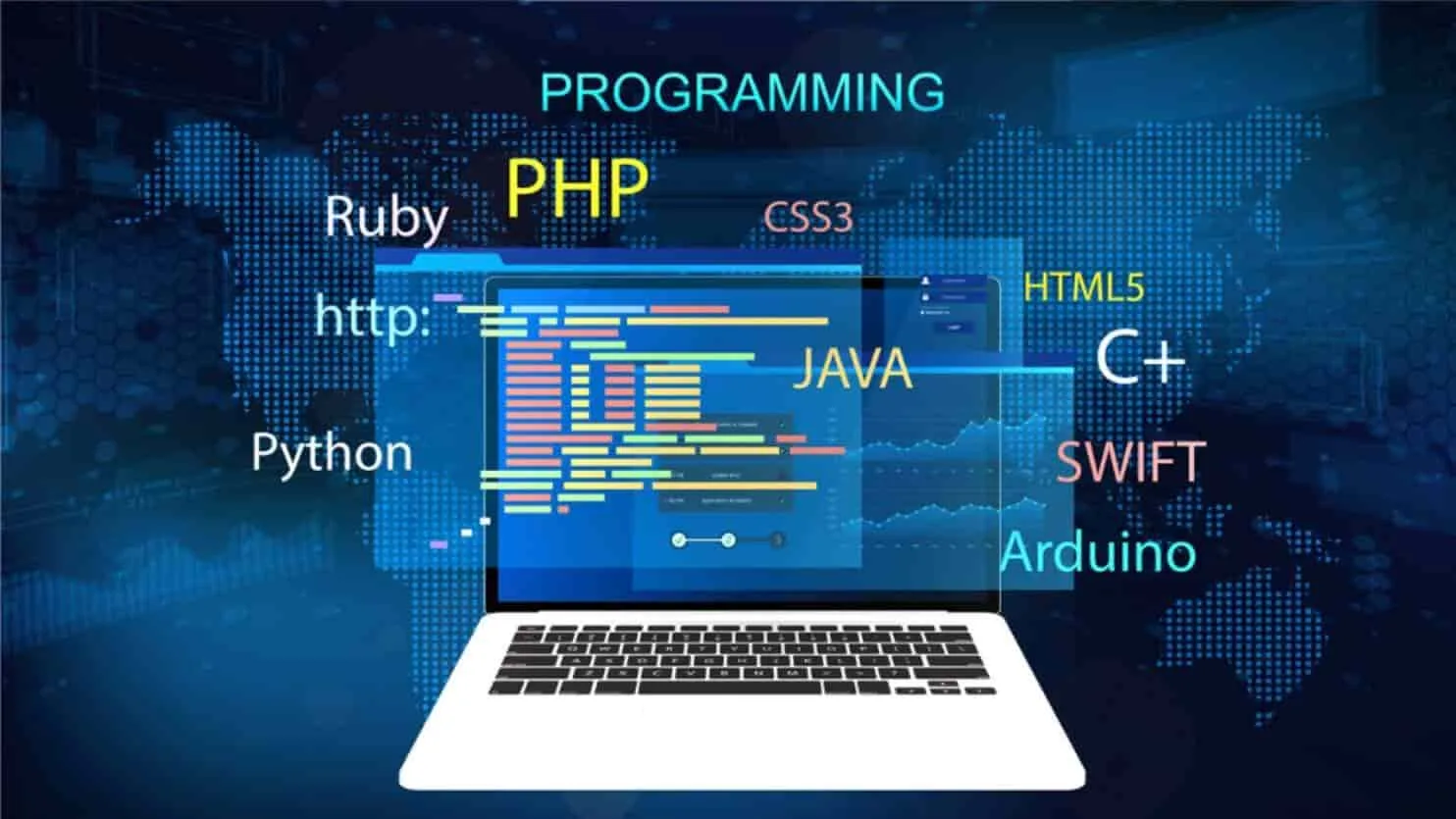Cybersecurity has become a priority in the modern day and age of online businesses and stores.
Without cybersecurity, your websites and apps become extremely exposed to potential intruders. You risk data leaks that can cost you thousands, if not millions of dollars, and land you in a heap of trouble with your customers.
Over 50% of all cyber attacks are on SMB’s.
Enterprises experienced 130 security breaches per year, per organisation, on average. Enterprises saw the annual cost of cyber security increase 22.7% in 2021. The annual number of security breaches on enterprise organisations increased by 27.4%.
The cost of cybercrime is predicted to hit $8 trillion in 2023 and will grow to $10.5 trillion by 2025, according Cybersecurity Ventures’ “2022 Official Cybercrime Report,”
The unfortunate thing, however, is that cyberattacks are unavoidable. The real trouble lies in the code and the programming languages used to build your websites and apps.
No matter how good the programming language is, there will always be backdoors and pieces of code that a hacker can exploit.
This is why all top cybersecurity experts seek to learn as many languages as possible. With that knowledge, they can find the leaks and set up countermeasures in case a backdoor ends up being exploited.
But which languages are the most popular among coders, experts and, by hackers?
Take a look at the list below and find out!
Why Being Familiar with Programming Languages Is Important for Cybersecurity?
But, before we get to the list, let’s discuss the main advantages of a security expert being familiar with programming languages.
By being familiar with programming languages, a security expert can recognise the vulnerabilities in the code and plug those gaps before a hacker can exploit them.
The thing about programming languages, though, is that their vulnerabilities are an inherent part of them. Thus, eliminating them and preventing exploitation of the code by a hacker isn’t entirely possible.
However, by becoming familiar with the programming language and, by extension, its vulnerabilities, a cybersecurity expert can formulate ways for early detection that will help them spot a breach early and severely dampen the impact of a hack or even stop it in its tracks.
The other advantage of knowing multiple programming languages as a security expert is that you become much more flexible in your work.
With such a wide selection of languages, websites and apps can vary greatly based on their purpose, architecture, or even the programming team that made them.
By knowing as many programming languages as possible, or at least being familiar with the most popular ones, you’re ensuring that you can work for pretty much any client and ensure the safety of their data and that of their customers.
Finally, being an expert programmer in several languages raises your value as an expert on the market. Simply put, by knowing multiple programming languages and knowing them well, you’re a massively valuable asset that is sure to be well compensated for the work they do.
- HTML
HTML is one of the most popular programming languages for creating websites. It’s basic, easy to learn, and easy to implement, making it perfect for creating simple but functional websites.
However, due to its popularity and its basic makeup, it’s often very easily exploited by hackers. Some of the most popular ways cybercriminals exploit HTML is by mounting multi-site scripting attacks. These attacks are used to inject malicious code into websites and spread it to end users.
In addition, HTML is vulnerable to content spoofing, which allows hackers to steal information from end users, such as names, passwords, credit card info, and many other pieces of info about the customer.
By becoming familiar with HTML, when you maintain a website it will be easier to spot vulnerabilities in many sites and web apps, point them out, and shut them down before they get exploited.
- C
C is one of the most basic programming languages out there.
As such, it is easy to master and implement, making it excellent for creating basic apps and simple landing pages.
Just like HTML, this makes the language quite vulnerable to a number of exploits. However, it also allows cybersecurity experts to reverse engineer a number of viruses, which leads to C being a must-know programming language for people creating antivirus software.
- C++
You can’t mention C without mentioning its younger brother C++.
C++ is a younger, upgraded version of C, and it offers a lot more flexibility in coding while also offering better performance than its brother.
While C++ isn’t often used for creating websites, it’s used heavily in creating desktop and mobile apps. Such popularity in the app world means that the language is often targeted by hackers looking to exploit apps, which is why many cybersecurity consulting companies require that their experts be familiar with C++.
- Java
Java is yet another old but reliable programming language. Java was responsible for creating the vast majority of the most popular operating systems today and is often used as a driver for both modern and legacy servers.
In cybersecurity, Java is often used in penetration testing and is heavily utilized by ethical hackers to test various OSs and apps for potential vulnerabilities and uncover backdoors.
- JavaScript
While its cousin Java is used mainly in apps, JavaScript is primarily used in creating websites.
The versatility of this programming language allows for the creation of many elements commonly found on websites. A wide variety of plugins have been made with and for this language, thus increasing its usability further.
Unfortunately, this also means that cybercriminals often exploit this language to mount XSS attacks. Thus, if you intend to become a cybersecurity expert working with eCommerce businesses, this language might be essential for your job.
- Python
One can’t talk about cybersecurity without mentioning Python.
Python is one of the most widespread programming languages used by security experts. Its flexible nature allows the experts to perform a great number of tasks, making it an essential tool in any cybersecurity firm’s arsenal.
Python is often used to automate malware analysis tasks, thus heavily improving a cybersecurity firm’s ability to create responses for malware threats. It’s also used for penetration testing, scanning, and analysing cyber threats, making it an incredibly versatile tool.
- Assembly
Assembly is a low-level programming language for analysing various malware and cybersecurity threats.
Due to its simple nature, Assembly is often used to dismantle, analyse, and reverse engineer malware, making it an excellent tool for any cybersecurity expert of any level.
- PHP
PHP is one of the essential programming languages for creating websites and web apps.
Its most prominent feature is that it is primarily used to create scripts for gathering data from users. This makes it invaluable for creating forms, fostering conversions, and in website analytics.
Unfortunately, PHP is often a target for hackers because of its data-gathering nature. However, proper knowledge of PHP prevents most cyberattacks and effectively shuts down DDoS attacks.
- SQL
Similarly to PHP, SQL is a programming language used to parse data in large databases.
Considering that most modern businesses rely heavily on data, it makes sense that they would value a programming language very highly that helps them analyse and manage the huge amount of data they collect on a daily basis.
Alas, SQL is often used for malicious purposes as well. Hackers using SQL will try to create data extraction queries and attempt to inject them into websites to, essentially, steal data. Thus, to avoid massive data leaks, most businesses require their cybersecurity experts to be privy to this programming language in order to prevent such catastrophic data breaches.
- Golang
Most typically known as just Go, or Go Programming Language, Golang is a language very similar to C, but made to be even simpler, faster to compile, more stable, and harder to breach.
This is why Go is often used to create source codes for many of the most popular OS systems. On the cybersecurity side, Go is used to create large malicious files intended to penetrate deeper, as most very large files cannot be scanned by most antivirus software.
Thus, knowledge in Go is highly valued in the cybersecurity industry, as it helps prevent a large amount of cyber-attacks, as well as in penetration testing of apps.
- Ruby
Ruby, sometimes known as Ruby-on-rails, is a massively popular general-purpose, high-level language used for creating eCommerce websites.
Ruby has many elements of C, as it was first written in that language, but its syntax is very similar to Python.
Ruby is characterised by ease of use and excellent flexibility and is used by many popular sites such as Airbnb, Kickstarter, and GitHub.
Its popularity is also the reason many hackers are trying to exploit it. Because the language is so widespread, being able to exploit it allows the attacker to infiltrate many websites around the Internet with relative ease.
This is why many cybersecurity experts working for businesses that have eCommerce websites are often required to be familiar with Ruby in order to prevent data breaches and theft.
- Shell Scripting
Shell scripting is a simple creation of command lines used in many operating systems’ control terminals.
Malicious use of shell scripting can create massive breaches in an OS’s security, so most cybersecurity experts are trained in ways to recognise these malicious command lines and eliminate them.
Extended Summary
Cybersecurity is a critical aspect of our increasingly digital world. With more and more personal and sensitive information being stored and transmitted online, the need for robust and effective cybersecurity measures has never been greater.
Programming languages are the foundation upon which all software is built. Each language has its own unique set of strengths and weaknesses, making some more suitable for certain tasks than others.
When it comes to cybersecurity, choosing the right programming language is crucial to ensuring the security of software systems and applications.
As we said, an incredible number of languages are used for creating websites and apps; however, only a handful are easy to use, comprehensive and secure enough to be used for the vast majority of websites and apps we access today.
This also means that they’re often targeted by hackers, though, and any cybersecurity expert looking to improve their repertoire of tools they can use to fight back would be smart to learn these 12 programming languages.







